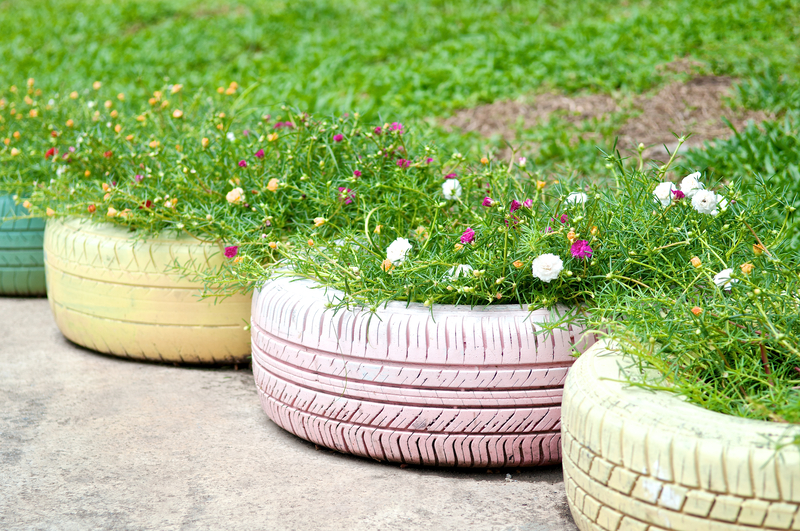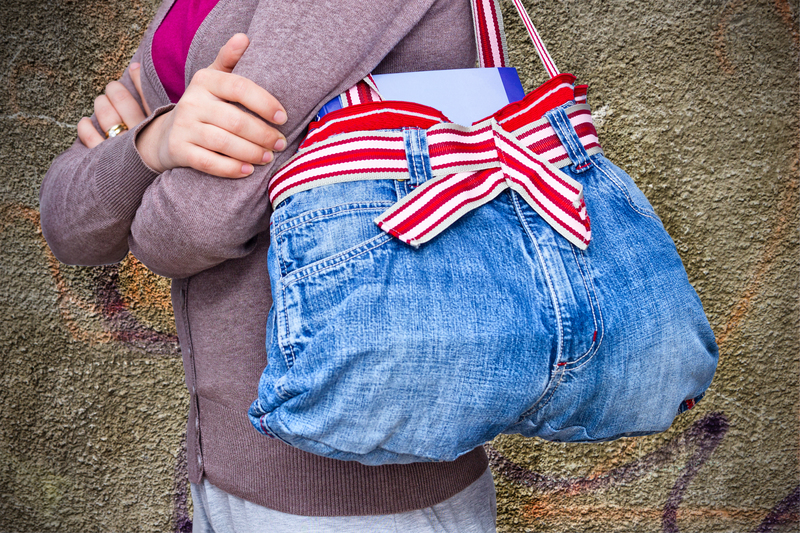Money-Saving Secrets for Bulky Waste Item Disposal
Disposing of bulky waste items--like furniture, appliances, and garden debris--can seem daunting and often comes with hidden costs. However, with a strategic approach and knowledge of cost-effective methods, you can tackle bulky waste disposal without breaking the bank. In this comprehensive guide, we'll unveil the best money-saving strategies to help you clear out heavy, large, or awkward items responsibly and affordably.

Understanding Bulky Waste and Why Disposal Is Expensive
Bulky waste, also referred to as large-item waste, encompasses anything too big to fit in standard trash bins or that violates weekly collection limits. Common examples include mattresses, old sofas, refrigerators, washing machines, bicycles, and tree branches. Traditional methods of disposal--such as hiring private haulers or paying for landfill drop-offs--can be expensive and sometimes unnecessary.
Why Bulky Item Disposal Costs Add Up
- Special Handling: Bulky items require extra labor and transport effort.
- Landfill Charges: Many landfills charge by the volume or weight, which adds up with heavy waste.
- Environmental Levies: Electronics and appliances may carry additional disposal fees due to hazardous components.
- Limited Municipal Services: Not all municipalities offer free or frequent bulky waste pick-ups, pushing people towards paid solutions.
But don't worry--below, we reveal clever and responsible methods to minimize costs or even dispose of large items for free.
Best Money-Saving Methods for Bulk Waste Disposal
1. Check Your Local Council's Free or Subsidized Collection Services
Your local government may offer bulky waste collection--sometimes for free, sometimes at a reduced rate. Some areas provide annual, seasonal, or upon-request pick-ups.
- Contact your city's waste department or go online to read guidelines.
- Some cities limit free collections to a certain number of items or times per year.
- Prepare items by separating recyclable and non-recyclable materials for even more savings.
Pro Tip: Consider scheduling your disposal on your neighborhood's large-item pick-up days to save on individual fees.
2. Donate Usable Items to Avoid Disposal Fees
Is your bulky waste item still in good shape? Donation is a win-win! Charities and non-profits (such as The Salvation Army, Habitat for Humanity, or Goodwill) frequently accept furniture and working appliances, sometimes even offering free pick-up services for large donations.
- Check with local shelters, thrift stores, or church organizations for bulky item donation options.
- Keep documentation for potential tax deductions!
- Ensure items are clean and in functional condition to qualify for most donation programs.
3. Sell Instead of Send to the Dump
Turn your trash into cash! Many large, still-functional items have value on popular online marketplaces:
- Facebook Marketplace and Craigslist are great platforms for local buyers.
- OfferUp, eBay Local, and Nextdoor also help find nearby takers for bulky items.
*Tip:* Price your items affordably and mention the buyer is responsible for pick-up to save on transport fees.
4. Use Community Swap, Freecycle, and Giveaway Groups
If you'd rather simply get rid of your unwanted bulky waste for free, offer it up on Freecycle.org or local Buy Nothing groups. Not only does this promote reuse and sustainability, but it also ensures you pay nothing for disposal.
5. Break Down Bulky Waste Items to Save Costs
Many disposal centers and municipal services charge by size or number of items. If you break items down into smaller parts, you could reduce costs significantly.
- Disassemble sofas or tables using basic hand tools.
- Remove mattress springs or foam parts for easier (and sometimes cheaper) disposal.
- Separate electronic waste and hazardous components for designated recycling, often at no charge.
*Tip:* Some hardware stores and recycling centers accept specific components like metal frames or electronics for free or at reduced fees.
6. Schedule a Bulk Pick-Up with Neighbors
Pooling resources with your neighbors can dramatically lower costs. Some private haulers, dumpsters, and skip bin services offer better pricing when multiple households share one order.
- Coordinate with your block to schedule a shared pick-up and split the cost.
- Some neighborhoods organize annual bulk disposal days with group rates--ask your HOA or local council.
7. Rent or Borrow a Vehicle for DIY Disposal
If your quantity of bulky waste is moderate, you can save significantly by transporting it yourself.
- Befriend a neighbor with a truck or rent a cargo van by the hour (services like U-Haul or Zipcar are affordable options).
- Many landfills and transfer stations charge lower fees for self-haul drop-offs compared to hiring a third-party.
- Double up trips with neighbors or choose off-peak hours for reduced drop-off fees.
8. Utilize Manufacturer Take-Back and Retailer Recycling Programs
Appliance stores, electronics shops, and mattress retailers often offer free take-back or paid recycling programs when you purchase a replacement. Examples include:
- Major appliance retailers (Best Buy, Lowe's, or Home Depot) pick up and recycle your old fridge or washer when you buy a new one.
- Mattress retailers frequently haul away your old mattress for a small fee or as part of the purchase agreement.
9. Explore Specialized Recycling Centers
Instead of paying landfill fees, check if your city has specialty recycling facilities for items like electronics, scrap metal, or large yard waste.
- Drop off e-waste (TVs, computers) for free or nominal costs at local recycling events.
- Many cities offer composting or mulching services for large limbs and yard debris at no charge.
- Some scrappers or junk haulers will pick up metal items for free because they profit from recycling the metal.
10. Analyze Hidden Fees to Avoid Surprises
Be aware of the hidden costs associated with bulk waste removal.
- Some companies charge extra for stairs, same-day service, or certain materials.
- Avoid last-minute or weekend bookings, as rush fees can be significant.
- Always ask for quotes in writing and clarify what's included before scheduling pick-up.
How to Choose the Best Bulk Waste Disposal Option for You
There is no one-size-fits-all answer for affordable bulky item disposal. Consider the following factors to optimize your savings:
- Condition of Items: Usable items can be sold, donated, or given away--you could even make money instead of spending it.
- Location: Urban areas often have more free or cheap resources. Rural communities may rely more on DIY drop-offs or shared hauler services.
- Quantity: A couple of items may be handled via curbside programs, while a large cleanout benefits from group pickup or a rental container.
- Type of Waste: Hazardous or electronic waste may require special handling, but often these are recycled for free at municipal events.
*Maximise savings by comparing all options available in your locale before committing to a paid service!*
Bulky Waste Disposal: Environmental Considerations
Saving money on bulky waste removal shouldn't come at the cost of the environment. Illegal dumping, burning, or unsanctioned landfill disposal harms the community and may result in fines. Always dispose of waste responsibly.
- Recycling: Reduces landfill impact and conserves resources.
- Reuse: Extends the life of goods through donation or sales.
- Proper Sorting: Ensures hazardous waste is treated safely.

Frequently Asked Questions: Bulk Waste Item Disposal
Can I leave my bulky waste on the curb for free?
In some areas, yes--but always check with your municipality first to avoid fines or code violations. Most cities only allow curbside bulky items during organized collection days.
How much does bulk waste pick-up normally cost?
Prices vary greatly. Municipal pick-ups may be free up to a quantity limit; private haulers typically charge $50-$150+ per item or offer volume-based rates. Comparing multiple price quotes ensures the best deal.
Is breaking down large items really worth the trouble?
Absolutely. By disassembling bulky items, you may reduce fees at drop-off locations, fit items into standard bins, or qualify for free recycling programs.
What should I do with hazardous bulky items like refrigerators?
Contact your city's recycling program. Appliances containing refrigerants, like fridges or air conditioners, must be disposed of according to environmental regulations. Never abandon these at curbside.
Final Thoughts: Save Money, Save Space, and Save the Environment
Disposing of bulky waste items doesn't have to be expensive--or stressful. By leveraging your community resources, exploring all local options, and prioritizing reuse or recycling, you can remove unwanted items while keeping your wallet intact. Whether you're clearing a single mattress or orchestrating a full home clean-out, use these money-saving secrets to make bulky waste disposal both affordable and sustainable.
Don't just throw money away--invest a few minutes in research, and your savings will stack up fast!
- Budget bulk waste removal tips
- Cheap furniture disposal
- Low-cost large item pickup
- Affordable appliance hauling
- Discount junk removal strategies
Consider bookmarking this guide or sharing it with friends and neighbors facing their own heavy haul: responsible, inexpensive, and hassle-free bulky waste disposal is just a few clever steps away!
